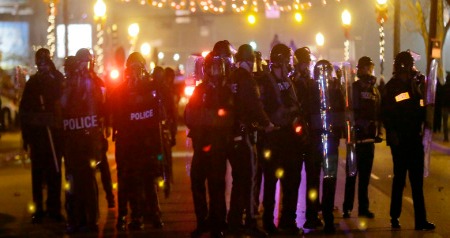
Last night, like many across the world who were watching, I experienced deep disappointment in the decision by the St. Louis County grand jury not to indict Ferguson, MO police officer Darren Wilson for fatally shooting Michael Brown, an unarmed black teenage boy, on August 9. My thoughts are first with the family of Michael Brown and the community of Ferguson.
It’s important to note that this case has never been about just one police officer. The spotlight on Ferguson has revealed with a renewed, sharper focus a deep divide in our society highlighting persistent systemic inequalities. Even as we awaited the decision in this case there have been too many additions to the killing of young black men and boys at the hand of those who have sworn to protect us. But who will protect the black and brown community from the police?
What we are witnessing is a reflection of a systematic failure in our society that is revealed wherever we are willing to look — schools, health care, employment, housing, life expectancy, poverty, and the list goes on. The problem is persistent, cumulative, and deeply debilitating. The arrest rate or murder rate between African Americans and whites, as evidenced by a recent set of studies, cannot be explained by the “behavior of blacks,” as some will quickly suggest. Nor can it only be explained by explicit racism in the police department or other systems that fail to serve the black community. What we are seeing is the consequence of a systematic failure at every level, and a political response that ranges from hostility to neglect. But many people in Ferguson and around the country of different races and from different perspectives are saying no, and demanding: enough.
Click here to read more.
